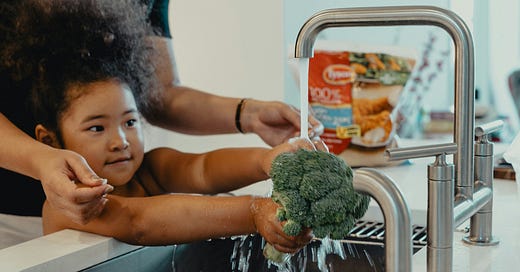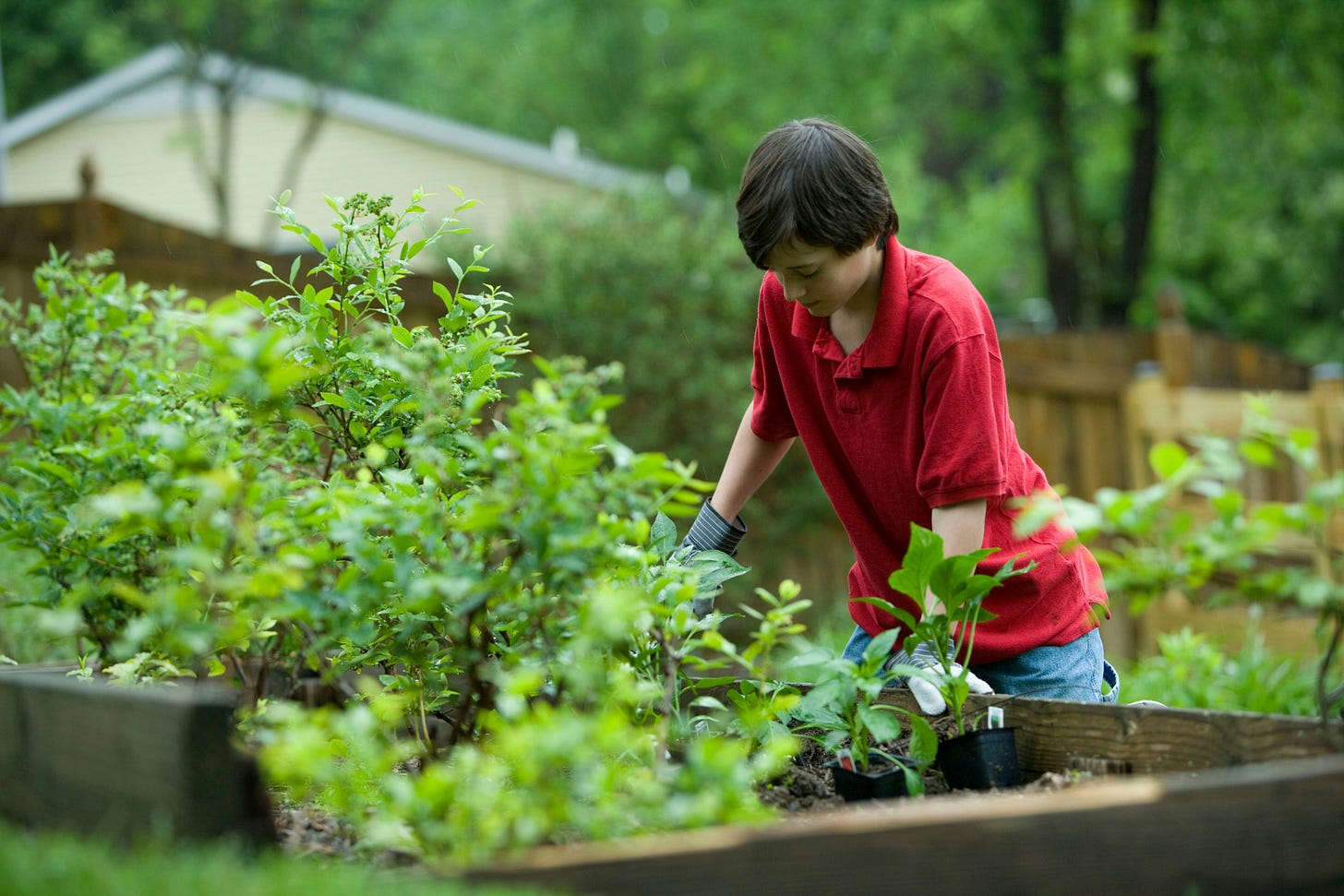Kids need to feel needed. But ever-increasing numbers of children and teens say they feel purposeless or aimless. They say their life has no meaning. The numbers are particularly striking in Jonathan Haidt’s new book, The Anxious Generation, where he shows a graph indicating a surge in both boys and girls over the past 12 years who agree with the statement “Life often feels meaningless.”
This shouldn’t be surprising. If a person of any age spends much of their day scrolling on a phone, looking at social media and consuming shallow, sensationalist content to pass the hours, it is inevitable that they’ll wrap up the day feeling like they haven’t accomplished much of value. This is precisely what teens are doing when they entertain themselves for nearly 9 hours a day on screens. Who wouldn’t feel awful after that?
When I give talks on digital minimalism, I talk about opportunity cost, which refers to all the things that a kid is missing out on when they’re wasting time on screens—the real-life experiences that are passing them by, like face-to-face conversations and outdoor play and creative projects. But what we should also think about are all the missed chances for training skills that make children and teens feel useful.
Reject Incompetence
I believe that a big part of a parent’s job is not just to create (and protect) time and space for kids to play offline, but also to teach them basic, practical life skills. We need to push back against the cycle of incompetence. A child should feel like an indispensable member of the family unit. And what better way to banish a sense of purposelessness than knowing one’s contributions, whether large or small, are needed and valued?
A helping child takes the burden off parents to do everything, thus helping families to function more smoothly. It gives kids confidence in their own capability. Over time, it will help to eliminate any unpleasant sense that a child is a mere accessory to the parent’s life. Knowing how to function in the world will make older teens less scared to individuate from their parent, leave home, and embark on their own adult adventures.
Research shows, too, that engaging in manual skills boosts mental well-being. Dr. Kelly Lambert is a neuroscientist from the University of Richmond in Virginia who believes that engaging in physical, hands-on activities is an effective cure for depression. Citing Lambert’s work, the New York Times recently wrote that
“a whole range of hands-on activities … are associated with cognitive and emotional benefits, including improvements in memory and attention, as well as reductions in anxiety and depression symptoms.”
How to Create Purpose
So, how do we infuse a sense of purpose into a child’s life? Purpose can be found by setting expectations for a child and expecting them to follow through. This is done most easily by assigning chores. Young kids can do straightforward tasks like emptying the dishwasher, folding laundry, sweeping a floor, picking up toys, putting away groceries, mulching garden beds, cleaning mirrors, and caring for pets.
When they’re young, you might have to create some projects for them. I used to give my 5-year-old some cash and send him to the convenience store to buy me a newspaper on Saturday mornings. I didn’t particularly need the newspaper, but I wanted him to learn how to walk independently, interact with a store clerk on his own, and complete a chore on a quiet early morning with minimal traffic. The look of pride on his face made me so happy.
As kids get older, parents need to delegate projects. Often, competence is developed by “subtracting” oneself from a situation (see my post on this)—stepping back so that the teen can step up to the challenge. Whether it’s cooking a meal for the family, cleaning a bathroom, mowing a lawn, shoveling snow, troubleshooting a technical problem, painting a wall, assembling furniture, calling to make an appointment or place an order for something, or taking responsibility for all schoolwork assignments, older kids and teens must rehearse these activities for years in order to become comfortable with them later in life.
It goes beyond chores, though. Kids need to learn how to make eye contact and have conversations with adults, listen attentively and ask questions, be responsible for others, adjust their day-to-day efforts based on what’s needed in the moment or to meet whatever standard has been set for them. They must learn that struggle is normal and that it’s usually followed by a sense of accomplishment. They need to learn to move with purpose!
What Should a Teen Know?
There’s a great list of things every 18-year-old should know how to do, from a 2015 book called How to Raise an Adult. It was written by Julie Lythcott-Haims, former dean of freshmen at Stanford University, who felt concerned that many of the first-year students were “somehow not quite formed fully as humans. They seemed to be scanning the sidelines for Mom and Dad. Under-constructed. Existentially impotent.”
She even went on to describe them, sadly, as “veal,” raised in a tightly controlled environment before being led to slaughter in the real world. Lythcott-Haims wrote that every 18-year-old should be able to:
Talk to strangers
Find their way around a new location
Manage school assignments independently
Contribute to the running of a household
Cope with the ups and downs of life (a.k.a. emotional resilience, anti-fragile)
Earn and manage money
Take risks (a.k.a. grit)
Keep in mind that training for these skills essentially starts at birth. Teens do not wake up on their 18th birthdays automatically knowing how to do all of these things. It takes practice, and the knowledge is cumulative, acquired over years of repetition, correction, and expansion.
We adults owe it to our kids to teach them practical skills. We must teach them how to do real things in a real world if we want them to thrive on their own someday. We have a relatively short window to develop these skills in our kids, so it’s important to start early and consistently.
You Might Also Like:
Your Kid Doesn’t Need a Smartphone to Be ‘Safe’
Don’t Ask for Parenting Advice on Social Media
Seventeen Seconds
The Analog Family is a reader-supported newsletter. If you value my work, please consider paying to read. It helps me so much. Thank you!






This is essentially the thesis of Hunt, Gather, Parent — stressed out urban double-income-one-kid mom from San Francisco travels to a bunch of rural areas around the world and learns about traditional ways of parenting. And the core concept across all of them is kids participating in the way of life and contributing. Kids rise to the expectations set for them.
The book made me think a lot of how we run our lives in developed rich areas. I’m also an urban parent in a professional job.
https://www.simonandschuster.com/books/Hunt-Gather-Parent/Michaeleen-Doucleff/9781982149680
Love this. Thinking up more chores now and will check out the book you reference on raising competent college age kids